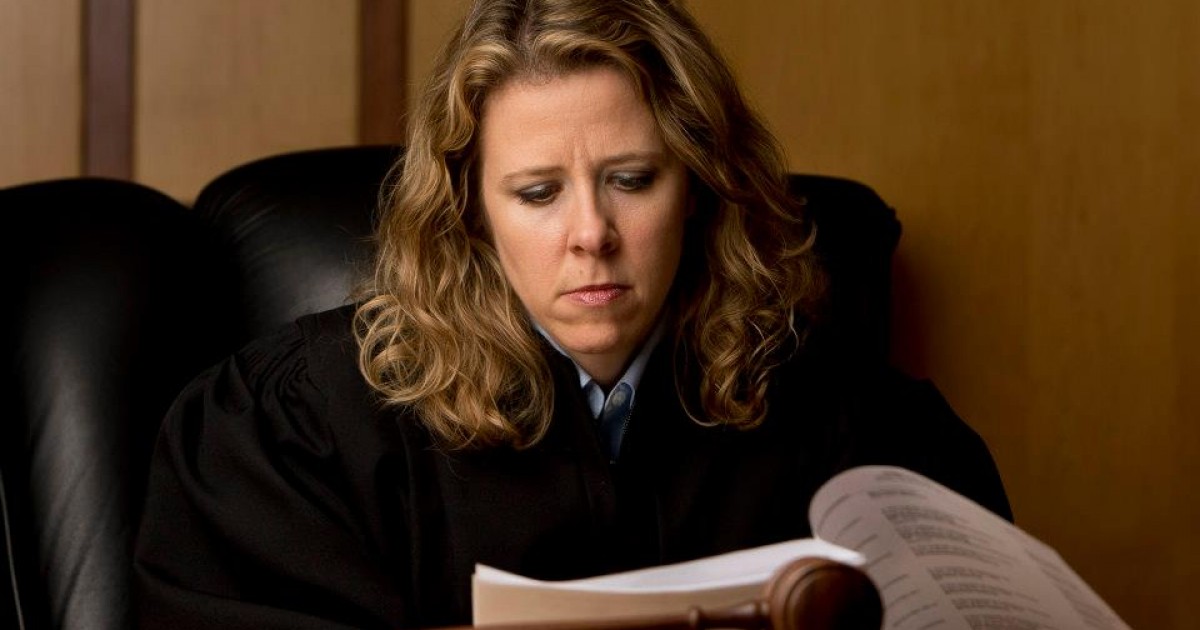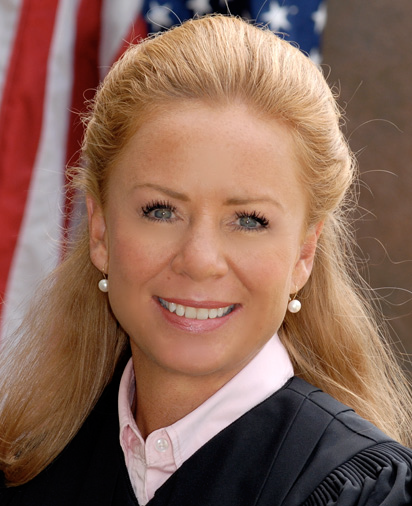Supreme Court Limits 4th Amendment Rights?
Decision gives police leeway on home searches; Justice Bradley joins liberals in dissent.
A sharply and oddly divided Wisconsin Supreme Court ruled today that a police officer can violate your Fourth Amendment right to be “secure” in your house from unreasonable searches and seizure if the officer is pursuing you for a mere minor traffic violation.
The court was divided in an unusual way, with Justice Rebecca Bradley, a conservative, dissenting along with liberal Justices Ann Walsh Bradley and Shirley Abrahamson. Further, conservative Justice Daniel Kelly also rejected one of the central claims of the lead opinion, though he ultimately chose not to dissent.
The case is State of Wisconsin vs. Richard L. Weber, and here are the essential facts: On April 20, 2012, Deputy Calvin Dorshorst of the Wood County sheriff’s department flashed his lights at Richard Weber’s car because Weber had a defective tail light. Weber was just 100 feet away from his driveway and pulled into his attached garage. Dorshorst followed into the driveway, got out of his car, told Weber he needed to talk to him, and told him to stop as Weber started to walk up the stairs into his house. The officer ran after him, stepped just inside the house, and grabbed Weber by the arm. He took Weber outside, and the officer ascertained that Weber had been driving while intoxicated. Backup officers arrived and arrested Weber, and after he agreed to let them search his car, they found some marijuana and a pipe. At the jail, Weber was found to have an illegally elevated blood alcohol level.
At trial, the judge rejected Weber’s motion to suppress the evidence on the basis that this was an illegal search and seizure, but the circuit court of appeals reversed that decision and unanimously agreed with Weber. The Wisconsin Supreme Court, in its 4-3 decision today, overruled the circuit court of appeals.
“We conclude that the deputy’s warrantless entry into Weber’s garage and subsequent arrest of Weber were constitutional because they were justified by the exigent circumstance of hot pursuit of a fleeing suspect who had committed jailable offenses,” Justice Annette Ziegler wrote for the majority.
The jailable offenses Ziegler cited were “fleeing an officer” and “resisting or obstructing an officer.”
Interestingly, Justice Rebecca Bradley and Justice Daniel Kelly both refused to buy this key argument.
“The objective facts here do not support probable cause for a jailable offense and do not establish any exigent circumstance,” wrote Rebecca Bradley. “Instead, the facts show a deputy concerned about a broken brake light who nevertheless had no urgent or immediate need to breach the threshold of Weber’s home without first securing a warrant.”
Kelly wrote: “I do not think there is probable cause to believe Mr. Weber committed jailable offenses before entering his garage, a conclusion that precludes deployment of the ‘hot pursuit’ doctrine.” He added pointedly: “Probable cause may not be a rigorous standard, but it still requires some plausible evidence…. In finding probable cause here, we are telling Wisconsin’s motorists that their protection from warrantless searches and arrests incident to traffic stops is not our Constitution, but instead law enforcement officers’ discretion. It cannot be that easy to elide Constitutional safeguards.”
Justice Ann Walsh Bradley, writing a long and powerful dissent that was joined by Justice Abrahamson, said: “The lead opinion would erode the Constitutional rights of us all. It sets a trajectory where, bit by bit, almost unnoticed, we may awaken one day to discover that the freedoms for which so many have fought and sacrificed have been severely curtailed.”
In this case, she said, “the sanctity of the home” was one of those freedoms being curtailed. She quoted a prior Wisconsin Supreme Court ruling that said: “It is axiomatic that the ‘physical entry of the home is the chief evil against which the wording of the Fourth Amendment is directed.’ ”
She concluded: “The State failed to overcome the presumption of unreasonableness that attaches to a warrantless entry into a constitutionally protected area.”
Matthew Rothschild is executive director of the Wisconsin Democracy Campaign.
Court Watch
-
No Unemployment Benefits For Worker Making Homophobic Remarks
 May 17th, 2022 by Gretchen Schuldt
May 17th, 2022 by Gretchen Schuldt
-
Appeals Court Upholds Injunction Against Abortion Protester
 Mar 13th, 2022 by Gretchen Schuldt
Mar 13th, 2022 by Gretchen Schuldt
-
80% of State’s Judicial Races Uncontested
 Feb 20th, 2022 by Gretchen Schuldt
Feb 20th, 2022 by Gretchen Schuldt
























Thank you Justice Rebecca Bradley. Your dissent gives me hope in these difficult to navigate times. Of course I am glad for our other justices who also dissent. I have read some opinion pieces that point to the need, especially now, to see each other and hear each other without our “pre-judgement” lenses.
Don’t panic. If three Justices say the law is one way, but four Justices say its not…then it is not. This case is more interesting because of Kelly seeming to have some independence (sorry Governor). Also interesting because the pro police/ pro citizen divide in conservative thought has finally penetrated the right side of the state Supreme Court. Not every conservative believes the government can do whatever it wants when someone they follow turns into a garage.